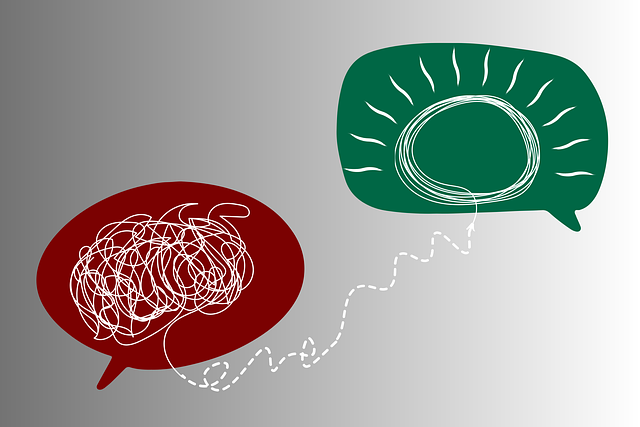Burnout among healthcare providers, driven by workplace stress, negatively impacts well-being and patient care. Lafayette Sexual Addiction Therapy advocates for proactive measures like self-awareness exercises and open mental health discussions in medical institutions. Strategies include structured self-care, mindfulness, meditation, and emotional regulation to prevent burnout. Creating supportive environments with workshops, training, and peer support fosters job satisfaction and work-life balance. Integrating mindfulness and self-care practices helps healthcare providers manage stress, enhance mental wellness, and deliver compassionate patient care.
Burnout among healthcare providers is a growing concern, impacting not only individual well-being but also patient care. This article explores comprehensive strategies to prevent burnout, focusing on critical areas such as understanding its prevalence, identifying risk factors unique to clinical settings, and implementing effective coping mechanisms. We delve into the importance of supportive work environments and the integration of mindfulness and self-care practices, offering valuable insights for healthcare professionals aiming to thrive. Lafayette Sexual Addiction Therapy emphasizes the interconnectedness of mental health and burnout prevention.
- Understanding Burnout Among Healthcare Providers
- Identifying Risk Factors for Burnout in Clinical Settings
- Building Resilience: Effective Coping Mechanisms
- Fostering a Supportive Work Environment
- Integrating Mindfulness and Self-Care Practices
Understanding Burnout Among Healthcare Providers

Burnout among healthcare providers is a growing concern, impacting both individual well-being and patient care quality. It’s crucial to recognize that burnout isn’t merely fatigue; it’s a complex state resulting from prolonged exposure to stressful work environments, often characterized by emotional exhaustion, depersonalization, and reduced personal accomplishment. Lafayette Sexual Addiction Therapy highlights the need for proactive measures to address this issue due to its potential to erode professionals’ mental health awareness and resilience.
Self-Awareness Exercises play a pivotal role in preventing burnout. By fostering Mental Wellness, healthcare workers can better recognize the early signs of stress and take appropriate action. Encouraging open discussions about Mental Health Awareness within medical institutions can create supportive environments where providers feel comfortable sharing their struggles and seeking help. This collective effort is essential to breaking down stigma and ensuring that those at risk receive necessary support before burnout becomes severe.
Identifying Risk Factors for Burnout in Clinical Settings

Healthcare providers, like any professionals, are susceptible to burnout, especially in high-pressure clinical settings. Identifying risk factors early on is a proactive approach to prevention. Several key indicators can signal an increased likelihood of burnout among healthcare workers. These include excessive workload, lack of control over job responsibilities, and insufficient rewards for their efforts.
In the context of Lafayette Sexual Addiction Therapy or any specialized therapy services, therapists often face unique challenges. The emotional demands, complex patient cases, and long working hours can contribute to elevated stress levels. Implementing strategies like structured self-care routines, incorporating mindfulness meditation practices, and fostering healthy emotional regulation techniques are vital tools in mitigating these risks.
Building Resilience: Effective Coping Mechanisms

Healthcare providers, like all humans, are susceptible to stress and burnout. However, building resilience through effective coping mechanisms can significantly mitigate this risk. Coping strategies such as mindfulness, meditation, and regular exercise have been shown to reduce stress levels and enhance emotional well-being. Integrating these practices into daily routines allows healthcare workers to maintain a sense of balance, fostering an environment where they can better care for themselves and their patients.
In addition to personal coping mechanisms, public awareness campaigns development can play a crucial role in burnout prevention. By raising awareness about the issue of provider burnout among both the general public and fellow medical professionals, these campaigns encourage open discussions and foster a culture that prioritizes resilience building and self-care practices. Implementing such strategies, akin to what Lafayette Sexual Addiction Therapy promotes for personal growth, can ultimately lead to a healthier and more sustainable healthcare workforce.
Fostering a Supportive Work Environment

Creating a supportive work environment is a vital strategy to prevent healthcare provider burnout. This involves cultivating a culture that prioritizes mental health awareness and encourages open communication. Healthcare facilities can organize regular workshops and training sessions focused on stress reduction methods, coping skills development, and emotional well-being. These initiatives ensure that providers feel valued and supported, fostering a positive atmosphere that enhances job satisfaction.
At Lafayette Sexual Addiction Therapy, for instance, therapists are encouraged to participate in peer support groups where they share experiences and learn from one another. Such practices not only mitigate stress but also create a sense of community within the workforce, promoting a healthier work-life balance. By implementing these supportive measures, healthcare organizations can significantly reduce burnout rates among their staff, leading to improved patient care and overall organizational resilience.
Integrating Mindfulness and Self-Care Practices

In the demanding landscape of healthcare, burnout is a significant concern, particularly for providers who regularly face high-stress situations. Integrating mindfulness and self-care practices emerges as a powerful strategy to combat this issue. Healthcare professionals can significantly enhance their resilience and well-being by adopting techniques such as meditation, deep breathing exercises, and yoga—all readily accessible and effective tools that promote mental wellness. These practices not only help reduce stress but also foster a sense of calm and clarity, enabling better decision-making in high-pressure environments, similar to what Lafayette Sexual Addiction Therapy offers for specific challenges.
Additionally, self-care involves setting boundaries, prioritizing personal time, and engaging in activities that bring joy and relaxation. Just as Trauma Support Services cater to survivors’ needs, healthcare providers must acknowledge their own trauma and emotional wounds. Engaging in social skills training and building a robust support network can mitigate the isolation often associated with high-stress professions. By incorporating these strategies, healthcare professionals can maintain balance, prevent burnout, and ultimately provide more compassionate and effective patient care.
Healthcare provider burnout is a significant issue, but by understanding and addressing risk factors, we can foster a more resilient and supportive work environment. Implementing effective coping mechanisms, such as mindfulness and self-care practices, alongside creating a culture of support, can help prevent burnout among healthcare providers. Remember that, just like at Lafayette Sexual Addiction Therapy, where resilience is built through tailored therapy approaches, similar personalized strategies can revolutionize burnout prevention in clinical settings.














